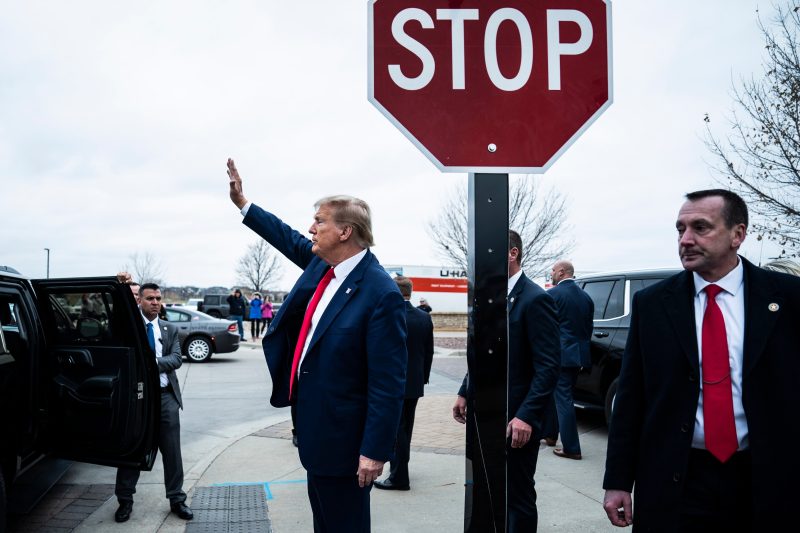President Donald Trump’s comment Wednesday that he could become a “dictator” if he wanted to reignited criticism of his comments and practices often seen as authoritarian.
The comment came during a rambling press conference with reporters, during which he spouted a number of inflammatory and often unprovable statements. In response to a question about ending investigations into his presidency, Trump suggested he was frustrated by the lack of progress, saying if he wanted to he could fire “all the people” involved and “do whatever I want.”
“I could be a dictator if I wanted to,” Trump said, in comments immediately jumped on by opponents and media observers.
The comment goes against months of efforts by the Trump White House to quell criticism that the President is governed by an impulsive, authoritarian style. Top aides and allies have argued — often to no avail — that the President’s off-the-cuff statements should not be taken literally, and that Trump is committed to upholding the rule of law.
Trump’s comment also comes days after former President Barack Obama stepped back into the public eye to issue a number of warning shots against the direction of Trump’s presidency, including a warning to members of Congress to stand up to trump when they believe the administration “crosses a line.”
Trump has already faced widespread criticism from both sides of the aisle for his banning of seven predominantly Muslim countries, his push to build a wall along the US-Mexican border, and his attempts to deport millions of undocumented immigrants.
Critics worry that his presidency has exhibited autocratic tendencies, especially in trying to silence dissent and limit free speech. Trump’s “dictator” comment only furthers these concerns, and will likely create additional momentum for those calling for checks and balances on the power of the executive branch.
